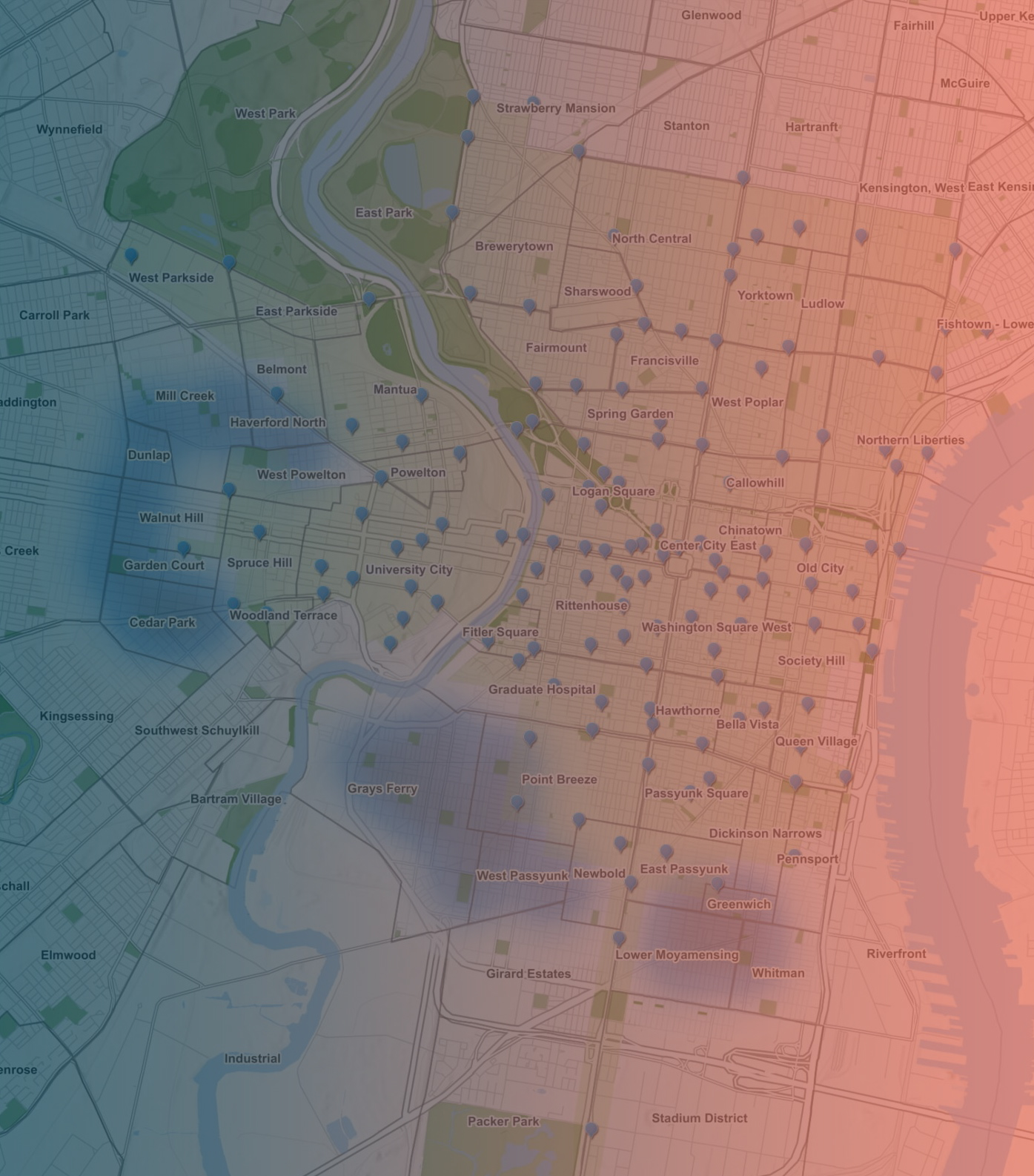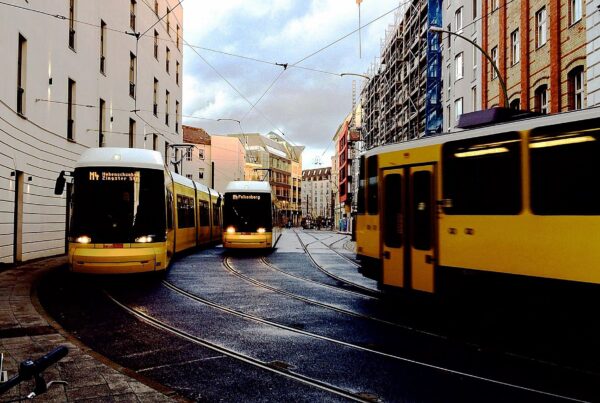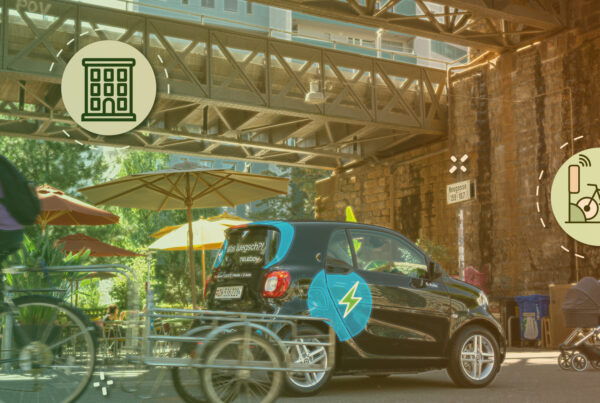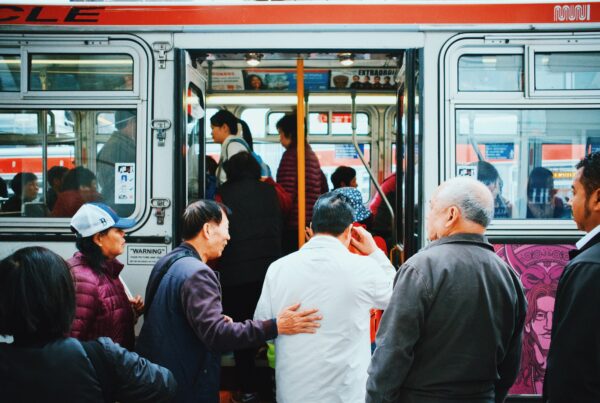The Mobility Hub
Your weekly guide to the latest in shared mobility
SUMC News and Announcements
The State of Shared Mobility in 2021
Metro Profiles highlights show how shared mobility has survived and thrived in the COVID era
The SUMC Learning Center regularly updates its Metro Area Profiles to reflect changes in shared mobility across the nation’s 25 most populated metropolitan areas. To assess the state of things in 2020 and 2021, and where we might be headed in 2022, we looked at updates in bikeshare, scootershare, and carshare, as well as dockless regulation and shared mobility legislation. And yes, there are positive signs ahead.
Our data primarily comes from three types of sources: shared mobility providers, local transportation departments, and online news articles and press releases.
- Lina Fedirko, Program Manager, ClimateWorks
- Dana Yanocha, Research Manager, ITDP
- Horace Dediu, Micromobility Industries
- Samantha Herr, Executive Director, NABSA
Register for the Roundtable

Mobility Justice
Cycling becomes an issue of racial justice when Black and Latino people in Chicago experience higher rates of ticketing while also seeing little-to-no biking infrastructure available to prevent sidewalk usage.
Over on the East Coast, the Gotham Gazette makes the case for the immediate congestion pricing in Manhattan to reduce the health-corroding effects of vehicle emissions—which disproportionately harm the Black and Hispanic neighborhoods torn apart by highway building decades ago.
While congestion pricing is at a stand-still in NYC, accessibility is not. The MTA, City Council, Department of City Planning, and the Mayor’s Office for People with Disabilities announced an initiative that incentivizes private developers to improve transit accessibility at train stations around the city.

Ridehailing/Carsharing/Carpooling
A new study coming from Carnegie Mellon University looks at the benefits and costs of ridehailing services in US cities and finds they produce less pollution per trip (about half) than the personal car. It’s the deadheading between rides that cancels all that out though.
Enterprise Holdings’ Enterprise Car Club carsharing service is venturing over to Ireland and launching at 24 locations around the country (it’s been in the UK for a decade). It’ll navigate the market with the country’s main (and first) offering: GoCar.
Farther East, Russia’s Delimobil, the country’s largest carsharing company, has filed for an initial public offering in the US and is showing a revenue (total $68.6 million) double that of the same period last year.
Flexible transit is on the rise! North Carolina’s Wave Transit rolled out its RideMICRO microtransit service (powered by Bus.com and Moovit) in Brunswick, New Hanover, and Pender Counties in partnership with the NCDOT and local agencies. Farther West, Blackfeet Transit made its on-demand, door-to-door transit service (powered by Via) live for residents in The Blackfeet Reservation and Browning, MT.

Bikesharing & Micromobility
E-bikes and e-scooters aren’t going anywhere. (As of Thursday afternoon, the latter is now a permanent program in Chicago too.) While this is great for sustainable mobility, the NYT points out that it has resulted in safety concerns from errant sidewalk trips and e-mobility crashes. At least on Bird’s end, they’ve developed technology to stop sidewalk scooter-ers in their tracks.
Congrats to Dott who joined Lime and Vélib’ in the Paris bikeshare world this week. The scooter-sharing company has officially launched its bikeshare program in Paris, expecting to provide 3,000 e-bikes in the city by the end of the year.
The pandemic biking boom is a global phenomenon, and Prague is looking to keep it going with its free bikesharing pilot. In the Czech capital, people with a Lítačka transport pass can use the shared bikes for free 15-minute periods up to four times a day.

Transit
When faced with fewer public transit riders, NYC Comptroller Scott Stringer rolled up his sleeves and investigated. The result: a new report which shows the differences between blue-collar and white-collar workers’ ridership, affirms that the new rush hour is “around the clock”, and gives eight policy recommendations for a post-COVID world.
Will it be the “new golden age of trains?” As planes emit 77 times more CO2 per passenger on journeys lasting under four hours, low-carbon train companies in the UK think so and are looking to provide the alternative to flying.
Maryland transit lovers rejoice! Baltimore’s first free public transit service is officially in operation with 12 buses in circulation that arrive every 15 minutes, aiming to ease the congestion in the city.

Technology
TransitTech is growing fast and helping transit systems operate faster and better for both people and the environment—but don’t just take it from us, listen to SUMC’s newest board member Tiffany Chu dive into TransitTech on The Energy Gang podcast.
Google Maps began offering drivers the lowest-carbon route for their trip this week as part of the company’s new environment-friendly policies. (They also show airline emissions when you search for fares and compare electric and hybrid vehicles against fossil-fuel-powered cars.)
What century does your city live in? Urban areas that rely on 100-year-old technology can be dramatically more sustainable by leveraging today’s technologies. CityLab founder Richard Florida makes the case for government-supported transportation innovation in Fortune.

Sustainability
Resilience against climate change is at the forefront of the USDOT’s new plan, in conjunction with the White House’s focus on environmental adaptation, to “ensure that our transportation infrastructure, policies, and programs will be more resilient to the climate impacts already facing our country.”
New York City Council passed a new bill that mandates a fully electric and zero-emissions school bus fleet by September 2035. Non-emergency fleet vehicles must follow by 2040. Smart.
Meanwhile, Norway hit an important milestone: last month, nine out of ten new vehicles purchased in the country were either EVs or plug-in hybrids—and eight out of every ten were fully electric. How does the US compare? EVs account for only 5% of total vehicle sales.
And to wrap things up, “Participants in a study who received cash for choosing modes of transport that are most beneficial to society ended up driving far less than study participants who did not get the reward.” Is that what it takes?
Project Funding Opportunities
RFP: Shared Bike and Scooter Program
City of Minneapolis
Minneapolis, MN
Deadline: October 27
RFP: Micro Transit Program
Greater Cleveland Regional Transit Authority
Cleveland, OH
Responses Due: October 29
RFP: Shared Mobility for Rancho San Pedro Pilot
Los Angeles Clean Tech Incubator
Los Angeles, CA
Deadline: October 29
RFP: Regional Coordination – a Technological Solution to Coordinating Regional Transportation, Creating Efficiency in Service
Delaware Dubuque Jackson County Regional Transit Authority (RTA 8), IA
Deadline: October 29





